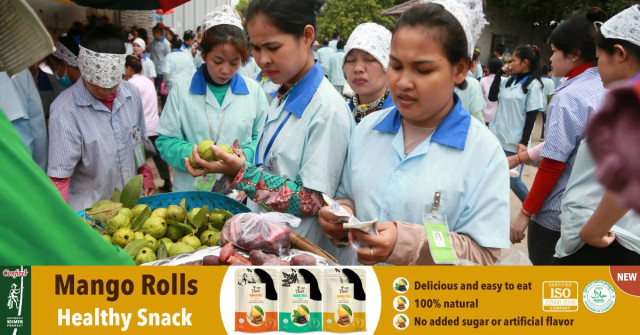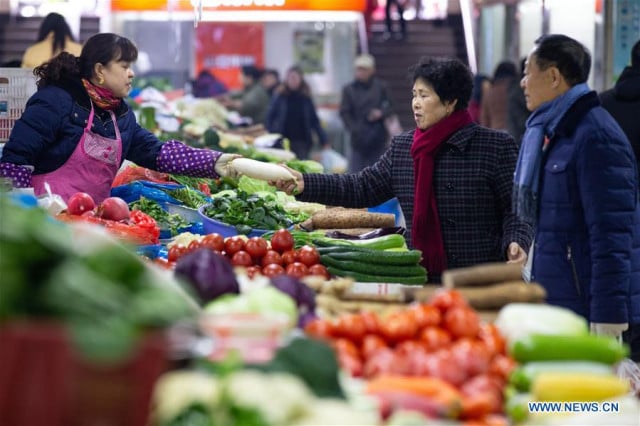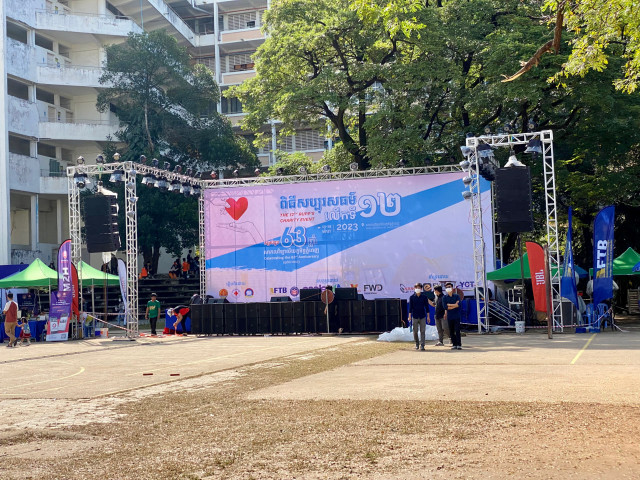Opinion: Cambodia Needs Robust Financial Literacy

- By Morn Piseth
- January 18, 2024 5:05 PM
The Cambodian government aims to lead its economy towards becoming a middle-income country by 2030, following its rapid economic development over the last decade. However, Cambodian financial literacy poses a challenge for the government in achieving this target. According to the Asian Development Bank (ADB), Cambodia’s overall financial literacy is only 11.5, the lower end of the range among a sample of 30 countries.
Financial literacy is a crucial element for achieving financial inclusion and sustainable economic growth. Being financially literate can help Cambodians accumulate an unsustainable debt burden, make critical decisions that result in monetary sustainability, enjoy a higher quality of life, and navigate the challenges and opportunities that arise unexpectedly. Cambodia has been experiencing a low level of financial literacy, which poses a big challenge for the government to fulfil its economic goals. Many young Cambodian people are considered financially illiterate. The report and survey conducted by ADB have shown that only 18 percent of Cambodia’s adult population is financially educated.
A country’s economic success is closely associated with its citizen’s financial literacy. Essentially, being financially literate is essential for Cambodian people to advance and achieve financial freedom since it will enable them to handle their debt and income more skillfully, which is the foundation of cash flow management and financial planning. Following Cambodia’s steady economic growth, it’s inevitable to mention that most Cambodian adults need to acquire financial education to achieve financial freedom and financial stability. It is often seen in Cambodian society that most families are in excessive debt to the local bank or any microbank due to the mismanagement of money. According to CEIC, in the latest reports, Cambodia’s Household Debt accounted for 36.0 percent of the country's Nominal GDP in Dec 2022. Financial literacy is the key factor for Cambodian people to be aware of their financial plans, most people take loans from the local bank and spend them carelessly, ending up being indebted. Cambodian households need to broaden their understanding based on financial literacy so that they can manage proper financial plans in their families and become more financially independent.
To promote financial literacy among the Cambodian people, the government has pledged to make this essential knowledge accessible and available to everyone. In 2023, Cambodia’s central bank and the association of microfinance institutions came together and launched “ Safe Finance in Community” to help people utilize formal financial services in a safe and manageable manner to enhance their financial freedom. The project was initiated in the provinces of Kampong Thom, Kampong Speu, Svay Rieng, and Battambang this year and will be expanded in the coming years. This project was in line with the government's "Safe Village Community" initiative. Undoubtedly, this project is a significant step towards promoting financial inclusion and ensuring consumer protection and empowerment in Cambodia. If the project is successfully implemented, it will increase people's awareness at all levels, starting from the grassroots level, to use their financial education to improve their lives.
Noticeably, in 2022 the United Nations Economic and Social Commission for the Pacific (ESCAP) partnered with the National Bank of Cambodia to launch the Let’s Talk Money, a new financial campaign aimed at enhancing financial inclusion and reducing over-indebtedness among low-income households and vulnerable communities in Cambodia. This campaign also aligned with the implementation of Cambodia’s National Financial Inclusion Strategy (NFIS) 2019-2025. This national strategy expects to increase access to quality reliable financial services, reduce the rate of unbanked women in half, from 27 percent to 13 percent and expand the use of official financial services from 59 percent to 70 percent by 2025.
As the Cambodian economy keeps growing steadily, the issue of financial literacy and financial inclusion needs to be tackled by the government, NGOs, and other concerned parties. To promote financial literacy, it is recommended that the government should consider adding financial education to the school curriculum. Financial literacy classes provide an opportunity to learn the basics of money management through activities, simulations, and more. These classes teach essential skills that will help students become financially responsible adults. By incorporating financial education into the school system, teenagers will have a better understanding of how to maintain financial stability through proper budgeting, saving, and investing. Moreover, microfinance institutions and local banks in Cambodia should offer financial consultation and be comfortable discussing financial issues and information with their clients. Local microfinance institutions play an important role in shaping people’s understanding before they take out loans and guiding them on how to manage their finances efficiently without any unexpected risks. Importantly, those microfinance institutions must ensure that financial services are widely accessible to everyone, as it’s a crucial step to achieving financial inclusion.
Non-governmental organizations (NGOs) and other relevant stakeholders have a significant role in promoting financial literacy. They can create social campaigns, organize training sessions, and conduct conferences to engage young people and individuals from diverse backgrounds to enhance their understanding of financial literacy. Furthermore, NGOs can work with the government to develop effective policies and initiatives aimed at strengthening national financial literacy. This collaboration will ensure a better quality of life for the people.
Morn Piseth is a junior student studying International Relations at IISPP. He is also a senior article writer for The SEED Cambodia. Recently, he completed an exchange program at the University of Central Missouri in the United States.















